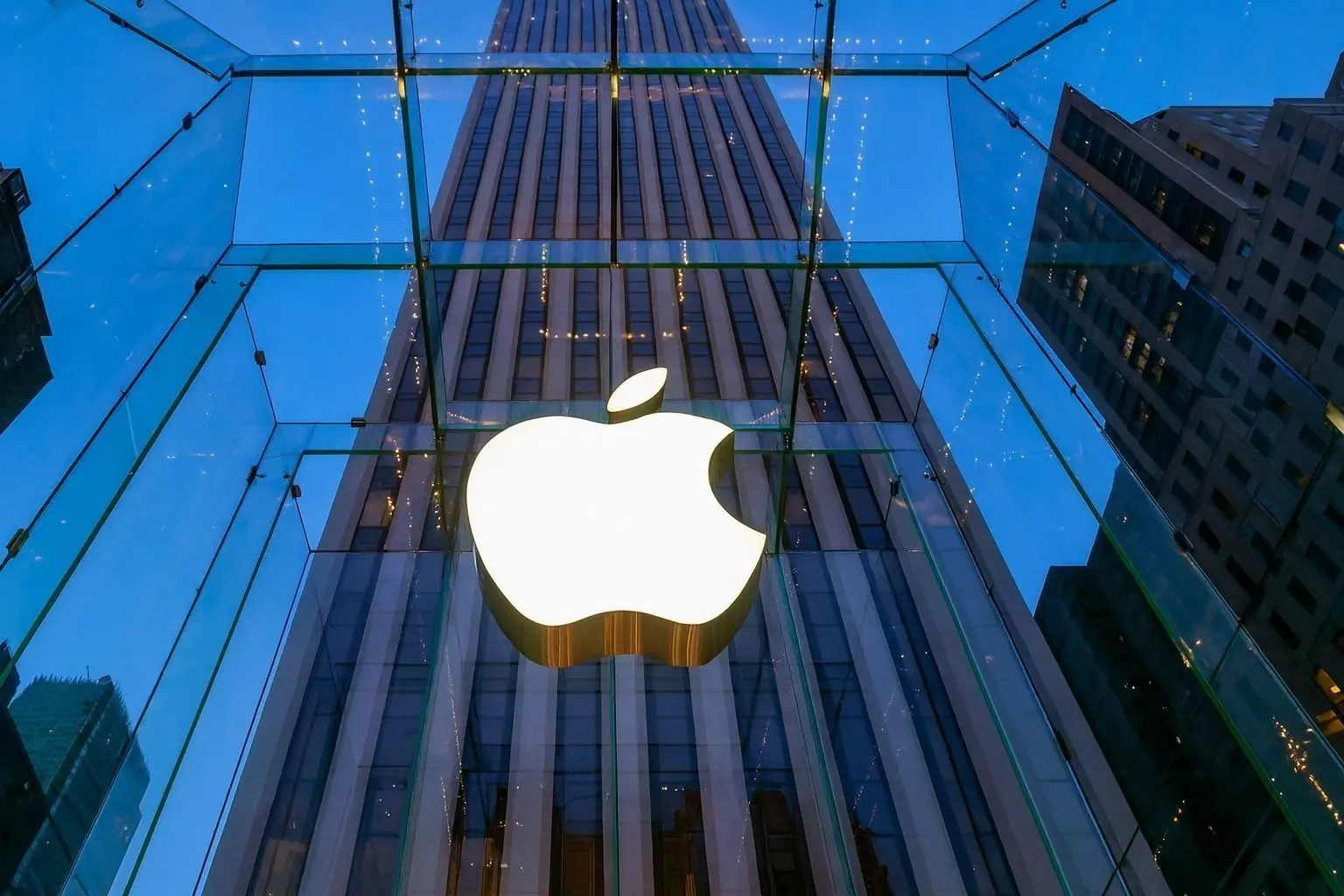Brussels / London – November 28, 2025
The European Union is opening a fresh front in its high‑stakes battle with Big Tech, after Apple disclosed that its advertising and mapping services now meet the thresholds of the bloc’s powerful Digital Markets Act (DMA) – but insists they still shouldn’t be treated as “gatekeepers.” 1
On Friday, the European Commission confirmed that Apple has notified it that Apple Ads and Apple Maps both hit key quantitative criteria under the DMA, triggering a formal review of whether the services should be subject to the law’s toughest competition rules. 1
Regulators now have 45 working days to decide whether to designate the services as core “gatekeeper” platforms. If they do, Apple would have six months to bring Apple Ads and Apple Maps into full compliance – or risk fines of up to 10–20% of its global annual revenue. 2
Apple, however, has already filed official rebuttals arguing that both services are too small and too contested in Europe to warrant the gatekeeper label. 2
Key Points
- Apple has told the European Commission that Apple Ads and Apple Maps meet DMA thresholds, meaning they have enough users and scale to fall under the law. 1
- EU regulators have opened a 45‑day review to decide if the two services should be formally designated as “gatekeepers,” which would trigger far‑reaching obligations. 2
- Apple strongly disputes the need for designation, saying Apple Ads has only a “minimal” presence in EU digital advertising and Apple Maps has “very limited usage” compared with rivals like Google Maps and Waze. 2
- A gatekeeper label would add Apple Ads and Maps to Apple’s existing DMA‑regulated services – App Store, iOS, Safari and iPadOS – intensifying the regulatory pressure the company already faces in Europe. 3
What the EU Announced on November 28, 2025
In a statement on Friday, the European Commission said Apple had self‑declared Apple Ads and Apple Maps as meeting the DMA’s quantitative thresholds for core platform services. 1
Under the DMA, a service is presumed to qualify as a gatekeeper if, among other criteria, it: 4
- belongs to a company with market capitalisation of at least €75 billion or EU turnover of €7.5 billion in each of the last three years,
- has at least 45 million monthly active end users and 10,000 yearly active business users in the EU, and
- has met those thresholds for the last three consecutive years, or is expected to in the near future.
Having crossed those lines, Apple’s notification automatically triggers a formal review. Regulators now have 45 working days to decide whether Apple Ads and Maps should join the list of designated DMA “core platform services.” 2
If at least one of the services is designated, Apple will have six months to implement a long list of do’s and don’ts – including strict limits on how it uses data across services and greater transparency for advertisers and business users. 4
Several outlets worldwide – from India’s Economic Times to US market newswires and tech media – republished or expanded on the same core Reuters report, signalling how closely global investors and developers are watching this next phase of DMA enforcement. 5
What Is a DMA “Gatekeeper” – and Why It Matters
The Digital Markets Act, in force since 2023, is the EU’s flagship law aimed at making digital markets “fair and contestable” by reining in the conduct of the largest online platforms. 6
The law targets companies whose services act as critical gateways between businesses and consumers – think app stores, operating systems, web browsers, online marketplaces, social networks, search engines and online advertising networks. These are labelled gatekeepers and face special obligations such as: 6
- No self‑preferencing (e.g., giving first place to their own services in rankings or results).
- No forced tying or bundling of services, like requiring the use of a specific payment system or browser engine.
- Strict limits on combining users’ personal data across services for targeted advertising without consent.
- Detailed transparency for advertisers and publishers about prices, fees and metrics for each ad placement.
As of today, the Commission lists 23 core platform services across Alphabet, Amazon, Apple, ByteDance, Meta, Microsoft and Booking as designated under the DMA. Apple is already a gatekeeper for the App Store, iOS, Safari and iPadOS. 3
Notably, the Commission has previously shown it can both add and decline to add services even when they hit the thresholds:
- It ultimately decided that iMessage, Bing, Edge and Microsoft Advertising do not qualify as gatekeepers, after qualitative investigations. 6
- It also concluded that Gmail, Outlook.com and Samsung’s browser, while big enough on paper, do not function as true “gateways” and were therefore not designated. 4
That context is crucial: Apple is now trying to convince Brussels that Apple Ads and Maps belong in that same “threshold‑hitting but not gatekeeper” bucket.
Apple’s Case: “Small Ads Player, Niche Maps Usage”
In comments shared with Reuters and echoed across financial and tech media, Apple has set out a two‑pronged rebuttal. 2
- Apple Ads is tiny next to rival ad giants.
- Apple says its ad business in Europe represents only a minimal share of online advertising compared to platforms run by Google, Meta, Microsoft, TikTok and X. 2
- It also stresses that Apple Ads does not rely on data from other Apple services or third‑party services, a key DMA concern when it comes to leveraging data across platforms for targeting. 2
- Apple Maps isn’t the default gateway in Europe.
- Apple argues that Apple Maps has “very limited usage” in the EU, especially when stacked against Google Maps and Waze, which often dominate navigation on both iOS and Android. 2
- The company also stresses that Maps does not offer the kind of extensive “intermediation” functions – for example, acting as a primary marketplace where business users must be present to reach customers – that the DMA targets as core gateways. 7
Behind the scenes, Apple has submitted formal rebuttal documents to the Commission to support these arguments, according to market reports citing MT Newswires and other financial news services. 8
The Commission will now have to decide whether the company has provided “sufficiently substantiated” evidence to overcome the presumption that a threshold‑hitting service is a gatekeeper – similar to the process that led to iMessage being spared a designation in 2024. 4
The Broader Fight: Apple vs. EU Over the DMA
Friday’s move doesn’t come in a vacuum. It lands in the middle of a much larger, increasingly confrontational relationship between Apple and EU regulators.
- In April 2025, the Commission imposed the first DMA fines: €500 million on Apple over App Store “anti‑steering” rules that limited developers’ ability to direct users to cheaper offers outside Apple’s ecosystem, and €200 million on Meta over its “consent or pay” data model. 9
- Apple has since re‑engineered many aspects of iOS and the App Store in the EU, enabling sideloading, alternative app marketplaces and third‑party payment systems – changes the company argues increase security and privacy risks for users. 10
In a lengthy September 2025 statement titled “The Digital Markets Act’s impacts on EU users,” Apple warned that DMA enforcement is already: 10
- Delaying new features like Live Translation with AirPods and iPhone Mirroring in Europe.
- Forcing it to hold back richer Maps features such as Visited Places and Preferred Routes until it can safely share more data with third parties.
- Creating what the company describes as a “riskier, less intuitive” app experience, with more app stores, more payment flows and exposure to categories such as pornography and gambling apps that it previously blocked outright.
Senior executives have ramped up their rhetoric as well. Apple’s marketing chief Greg Joswiak recently accused Brussels of trying to “take the magic away” from Apple’s tightly integrated ecosystem, warning that over‑regulation could erode privacy and innovation rather than enhance them. 11
Put together, the possible gatekeeper designation for Apple Ads and Maps looks less like an isolated scuffle and more like the next round in a systemic clash over how far Europe can go in reshaping Apple’s business model.
What a Gatekeeper Label Could Mean for Apple Ads and Maps
Should Brussels decide that Apple Ads and Apple Maps really are gatekeepers, several practical consequences could follow.
1. Stricter Data Rules for Ads
As an online advertising service, Apple Ads would be squarely in the crosshairs of the DMA’s data‑use restrictions. Gatekeepers: 4
- Cannot combine personal data collected from different services (for example, from Maps, App Store and other Apple apps) for ad targeting without explicit, GDPR‑grade consent.
- Must not cross‑use data between services in ways that unfairly advantage their own advertising business.
- Have to give daily, detailed information to advertisers and publishers on prices, fees and metrics associated with each ad campaign and impression.
If Apple Ads is designated, Apple may have to further firewall user data between services and expand the reporting it gives to both advertisers and app publishers that rely on its ad platforms.
2. Potential Changes to Maps as a Business Channel
For Apple Maps, the implications could be subtler but still important:
- The DMA is particularly sensitive about services that act as intermediaries between businesses and consumers, such as marketplaces or platforms that control visibility and ranking. 4
- If Maps is deemed a gatekeeper, Apple might face obligations around how local search, recommendations, sponsored listings and business information are ranked, ensuring that rivals and business users are treated fairly and can access necessary data.
Right now, even commentators close to Apple admit it’s “unclear exactly how Maps’ features or offerings would need to be changed” if gatekeeper rules apply. 12
3. Increased Compliance Risk – and Fines
The DMA allows fines of up to 10% of a company’s worldwide annual turnover, rising to 20% for repeat infringers, and even structural remedies (like forcing the sale of parts of a business) in extreme cases. 4
Expanding gatekeeper obligations to Apple Ads and Maps would raise the stakes further for Apple in Europe:
- More services under the DMA means more complex compliance and greater exposure to enforcement.
- Missteps in one area (say, how data is shared between Maps, Ads and the App Store) could have knock‑on effectsacross multiple designated services.
How This Fits Into Europe’s Big‑Tech Strategy
For Brussels, the Apple Ads and Maps review is part of a broader strategy to assert regulatory leadership over global tech platforms.
The Commission has repeatedly said the DMA is “not targeting companies by nationality”, but the reality is that most gatekeepers are US‑based, plus China’s ByteDance. 6
By moving beyond app stores and OSes into ad tech and mapping, the EU is testing how far the DMA can reach into the less visible infrastructure that underpins digital markets:
- Ads: Who controls access to premium audiences and what data they can use.
- Maps: Who controls local discovery, navigation and location‑based services – a crucial layer for everything from ride‑hailing to food delivery.
If Apple Ads and Maps end up on the gatekeeper list, it would signal that no layer of a major platform’s stack is off‑limits if it becomes central enough to business‑to‑consumer interactions.
Timeline: What Happens Next
Here’s what to watch in the coming weeks and months:
- 45‑day review window
- The Commission has 45 working days from Apple’s notification to decide whether Apple Ads and Maps will be designated as gatekeepers. That places a decision roughly in early 2026, depending on holidays and scheduling. 2
- Public and stakeholder input
- In past DMA investigations, regulators have sought feedback from competitors, advertisers, app developers and consumer groups before deciding. Similar consultations are likely here, especially given the contested nature of Apple’s rebuttal. 4
- Six‑month compliance period (if designated)
- If Apple Ads and/or Maps are designated, Apple will have six months to file detailed compliance reportsand roll out concrete changes. 4
- Appeals and further litigation
- Apple is already challenging aspects of the DMA and related enforcement in court, and new designations would likely become fodder for additional legal appeals in EU courts, potentially shaping how the DMA is interpreted for years. 9
Why This Story Matters Beyond Apple
For consumers, developers and advertisers, Friday’s news isn’t just about Apple’s internal regulatory headaches. It’s a test case for how far the EU can push its vision of open, interoperable digital markets:
- If Apple persuades Brussels that Ads and Maps aren’t gatekeepers, it reinforces the idea that DMA thresholds are a starting point, not a rubber stamp.
- If the Commission goes ahead with designation, it could reshape how location data and first‑party Apple audiences are monetised, and set a precedent for similar reviews of other services from rival platforms.
Either way, the decision will echo far beyond Apple Park and the Berlaymont building – influencing how global tech giants design products, process data and compete for users in one of the world’s most heavily regulated digital markets.






